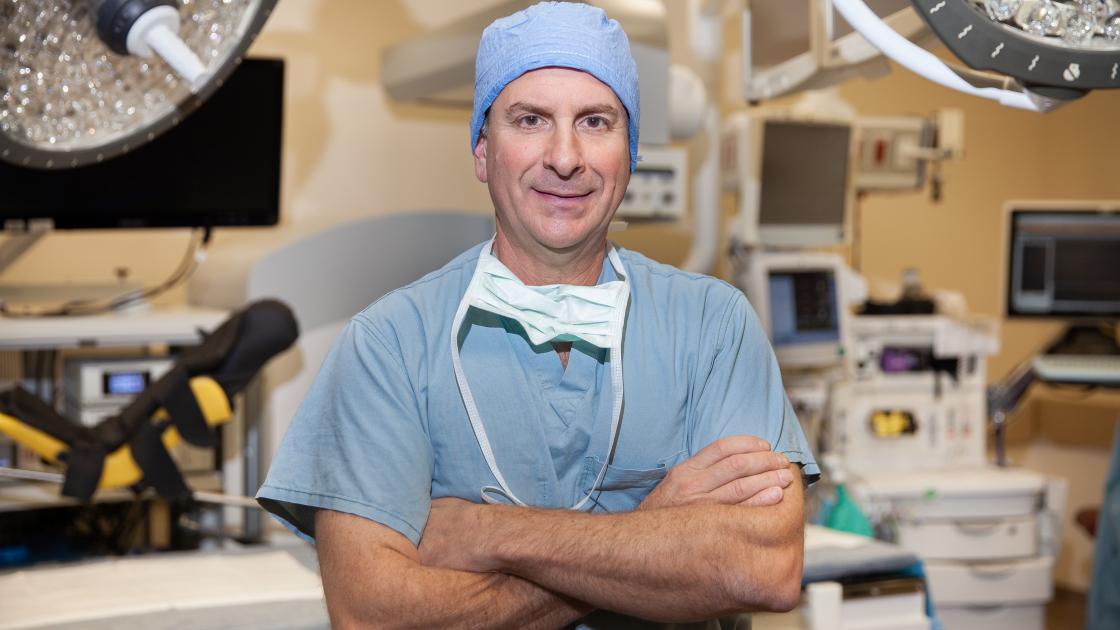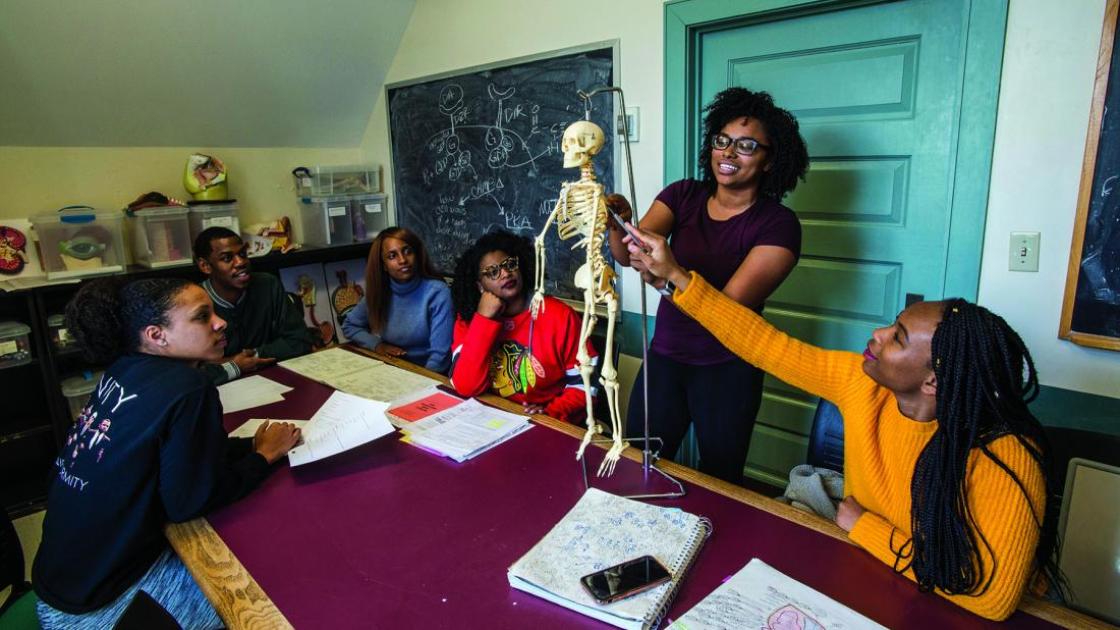
Novel surgery offers relief for kidney stone injuries
SIU Medicine urologist Bradley Schwartz, DO, FACS, performs nearly 400 surgeries each year to remove kidney stones from patients. The hard deposits are made from minerals such as calcium, infection or other constituents such as uric acid that collect in the kidneys. They are sometimes small enough to pass naturally, but when they aren’t, they can cause obstruction, discomfort and often, intense pain.
For Dr. Schwartz it’s also personal; he has had three stones himself and knows the big problems these little irritants can generate.
In the past year, Schwartz has added a novel procedure to his repertoire of laparoscopy and minimally invasive surgery. From literature reviews, he estimates the new procedure has been performed only 15 or 20 times in the world, and he has done three of them – two in Springfield and one in Washington. Its technical name is a mouthful: the robotic-assisted buccal graft ureteroplasty.
Dr. Schwartz takes tissue from the inside of a patient’s mouth, in the cheek – the buccal mucosa – and grafts it to repair damage to the ureter. The ureter is the tube that drains the kidney into the bladder. “People who have kidney stone disease can get strictures when stones lodge in the ureter,” he says. “Think of a golf ball in a garden hose.” Pressure builds up behind the partial obstruction and the friction creates a ring of scar tissue within the ureter.
The urologist can remove the stone, but the ischemic damage has already been done. The scarring in the ureter can be managed with stents, but patients’ responses vary. “They work for a while,” Dr. Schwartz says, “but then they don’t like it or can’t tolerate it and are ready to try something else.”
That was the case with his first patient, Lamar Johnson, 72, a state employee with a history of kidney stones. While on vacation in St. Thomas in summer 2019, Johnson was struck by incredible pain that he assumed was appendicitis. In the ER he learned he had a stricture.
“I’d never heard of that before,” Johnson says. Back in Springfield, Dr. Schwartz examined him and reached the same conclusion. “He explained what it was and told me about this procedure. He said ‘it’s never been done here but if you don’t mind I’d like to try it.’
Usually no one wants to be the first, but Johnson was “more than willing,” he says, chuckling.
Schwartz had confidence knowing there was a 40-year history of buccal tissue being used to repair the urethra – the tube that carries urine out of the body. He was applying the same principle and utilizing Intuitive Surgical’s da Vinci® Surgical System for robotic assistance to enhance precision and control in placing the graft. Patients who undergo robotic surgery tend to recover quicker.
Dr. Schwartz cautioned Johnson that while patients are rarely bothered by abdominal pain afterward, there would be considerable cheek pain due to the density of nerves and vascular tissue in the graft donor site.
“He was right about that,” Johnson says, “but it was temporary.” He considers the 3-hour surgery well worth it.
“I can’t tell you what a difference it has made in my life. It was like night and day. The very next day was just unbelievable relief. I could pee again without pain.”
Johnson says while he still has kidney stones, he passes them. “They don’t get hung up. I don’t have to have somebody go in and retrieve them or blast them. That’s what I’d put up with for years.”
Dr. Schwartz’s other two patients, a man and a woman, experienced similar successful outcomes.
Schwartz’s team will be presenting its work on the novel surgery at an international meeting in Germany in August.
 (YOUNG PATIENT MAKES HISTORY: In 1978 SIU plastic surgeon Allen Van Beek, MD, performed one of the world’s first bilateral surgeries, reattaching the arms of 2-year-old Devin Vannoy after a farming accident in rural Atlanta. Today Vannoy works in Lincoln and visits his friend, Dr. Van Beek, whenever travel takes him north to Minneapolis.)
(YOUNG PATIENT MAKES HISTORY: In 1978 SIU plastic surgeon Allen Van Beek, MD, performed one of the world’s first bilateral surgeries, reattaching the arms of 2-year-old Devin Vannoy after a farming accident in rural Atlanta. Today Vannoy works in Lincoln and visits his friend, Dr. Van Beek, whenever travel takes him north to Minneapolis.)





